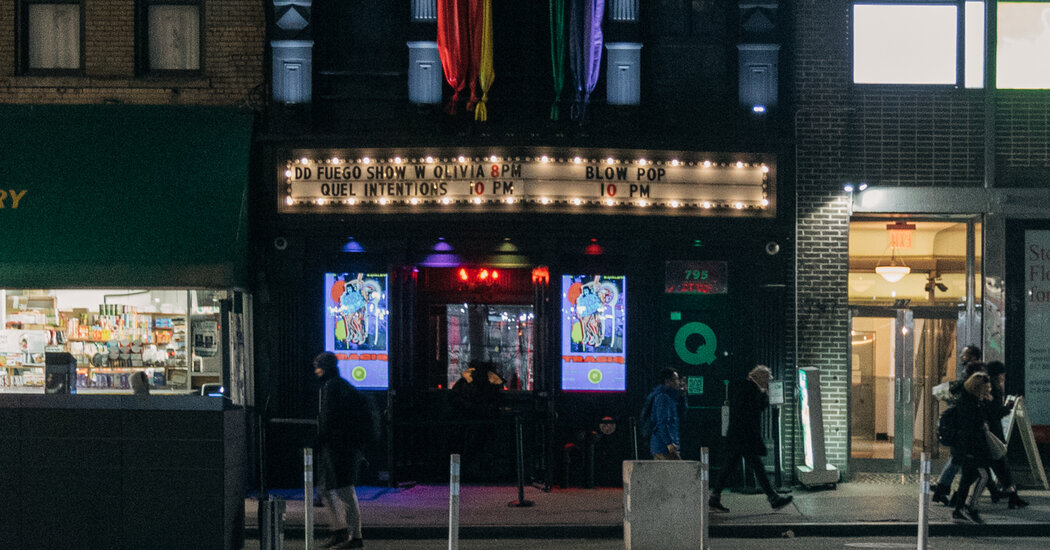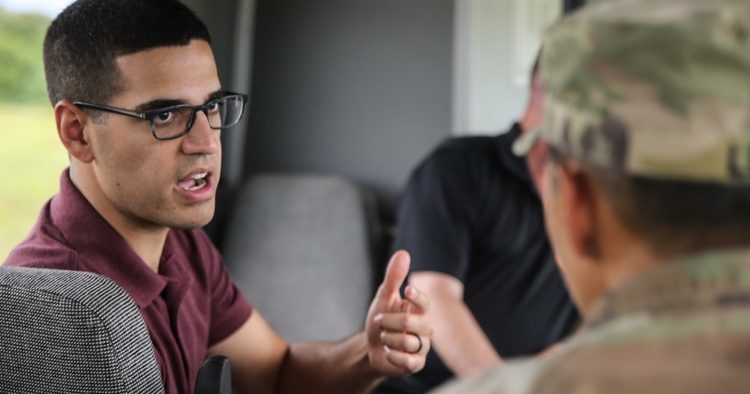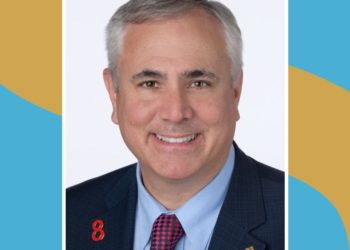One night in April 2022, Julio Ramirez left a Manhattan gay bar, escorted by a group of men into a taxi. It was just after 3 a.m.
About an hour later, the taxi driver reported to the police that Mr. Ramirez was alone and abandoned in the back of his cab. Mr. Ramirez’s bank account had been drained, and his wallet, phone and ID stolen. The men had given him a fatal cocktail of drugs before leaving him for dead.
A month later, John Umberger died in an Upper East Side townhouse following an encounter with the men at another gay bar. After withdrawing more than $20,000 from Mr. Umberger’s bank accounts, the defendants posed for pictures, toasted next to his unconscious body and lounged on his balcony with drinks.
On Wednesday, two men convicted of murder in February for drugging, robbing and ultimately luring Mr. Ramirez and Mr. Umberger to their deaths were sentenced.
Jayqwan Hamilton, 37, Robert DeMaio, 36, and Jacob Barroso, 32, were all convicted of murder, robbery and conspiracy in the murder of Mr. Ramirez.
Mr. Hamilton and Mr. DeMaio, who were also convicted of burglary and murder in the death of Mr. Umberger, received 40 years to life in prison. Mr. Barroso, who faced charges only in Mr. Ramirez’s death, received a lighter sentence of 20 years to life.
Judge Felicia A. Mennin said that she had considered the defense lawyers’ arguments, particularly a plea by Mr. DeMaio’s lawyer to consider his difficult upbringing and lack of parental role models. But, she said, the defendants had spent the stolen money on high living and luxury goods. The victims’ lives, she said, had been less important to them than “some fancy shoes and some fancy boots.”
All three men had faced sentences as long as life in prison for what prosecutors described as a “deadly hustle.” The three repeatedly carried out a practiced and calculated scheme that involved lurking outside bars in Hell’s Kitchen in Manhattan, said Meghan Hast, an assistant district attorney, during closing arguments at the trial.
On April 20, 2022, Mr. Ramirez, 25, a social worker, was out for drinks at the Ritz Bar & Lounge on West 46th Street with a friend, Carlos Camacho. Mr. Camacho, who testified at the trial, said the two friends had gotten separated and that he had assumed Mr. Ramirez had headed home. Instead, Mr. Ramirez had left the bar and gotten into a taxi with a group that included Mr. Hamilton and Mr. Barroso.
Mr. Umberger, 33, a political consultant, was visiting New York from Washington, D.C., in May of that year. He was last seen at the Q on West 48th Street — a bar three blocks from the Ritz — leaving with two men. Security camera footage captured the group leaving the bar and getting into a car; prosecutors identified the two men in the video as Mr. Hamilton and Mr. DeMaio.
Prosecutors showed jurors in the defendants’ trial photos of Mr. DeMaio posing and smiling next to Mr. Umberger’s incapacitated body in the townhouse where he was found. In another video, the camera panned to Mr. Hamilton, who was perched on the townhouse’s balcony, holding a drink.
The police initially treated the two deaths as isolated events — street muggings followed by solitary overdoses. Linda Clary, Mr. Umberger’s mother, described being told by police officers that her son had been robbed on the street, and that he then went back to the townhouse to do drugs.
But after discovering that a large sum of money had been transferred out of Mr. Umberger’s bank accounts, Ms. Clary said, she pushed the police to investigate further. Prodding by Ms. Clary and relatives of Mr. Ramirez prompted the police to open a homicide investigation into the two men’s deaths.
Several men spoke to The New York Times after surviving similar encounters. They described waking up with no recollection of the previous night, their bank accounts drained and their credit cards maxed out. When they awoke, some of the men said, they realized that someone had gained access to their phones using facial recognition technology while they were unconscious. Upon gaining access, the thieves had emptied their bank accounts and left them unconscious in their homes.
In several cases, men the victims didn’t recall meeting were captured on surveillance footage leading them out of the bars and into taxis or their apartments. The jury that convicted the three men heard from several of these victims during the trial.
That jury also heard from medical examiners, who said they had determined that Mr. Umberger and Mr. Ramirez were both killed by a fentanyl-laced drug cocktail. Mr. DeMaio, text messages showed, was the one to procure the fentanyl.
The post Three Sentenced for Luring Gay-Bar Robbery Victims to Their Deaths appeared first on New York Times.




